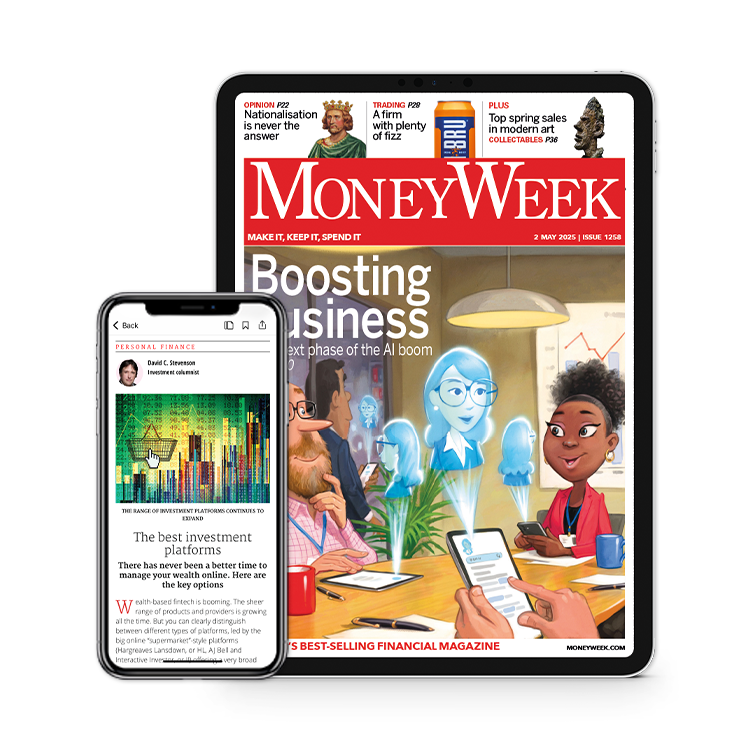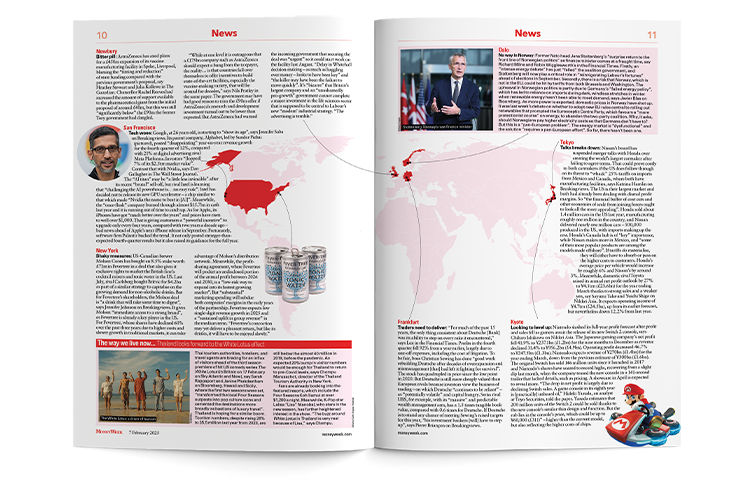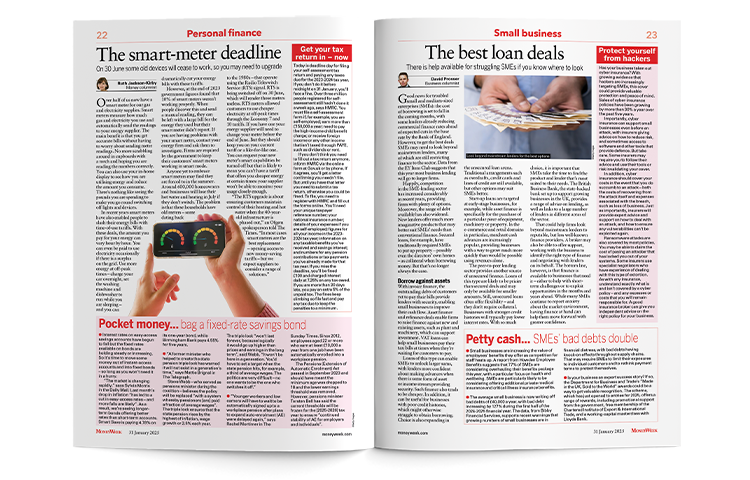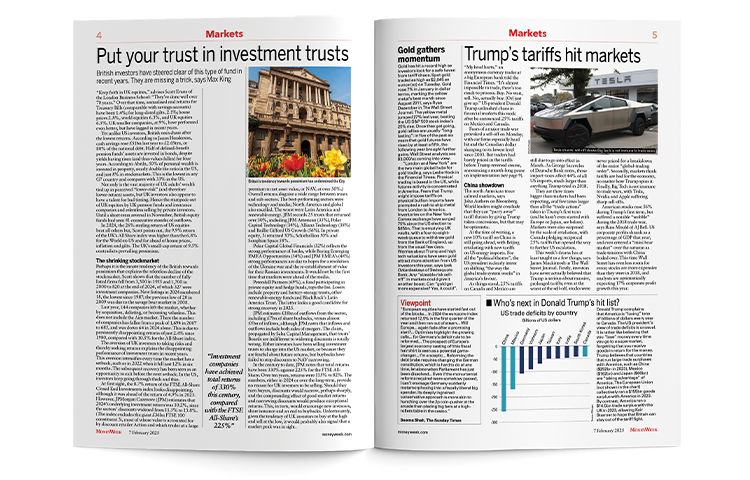Protect and grow your wealth with the UK's best-selling financial magazine. Every week our team of experts share insight and analysis on everything from the most lucrative investments to the best pension plan.
Start your trial today and get your first 6 issues for free, or save up to 62% when you choose an annual subscription.

Save £29.94 with this introductory offer
Or save up to 40% with an annual subscription
Weekly print magazine
Your subscription is protected by our full money-back guarantee*

Save £53.88 with this introductory offer
Or save up to 62% with an annual subscription
Weekly print magazine
Access the MoneyWeek App on your phone, tablet or laptop
Your subscription is protected by our full money-back guarantee*

Save £23.94 with this introductory offer
Or save up to 43% with an annual subscription
Access the MoneyWeek App on your phone, tablet or laptop
Your subscription is protected by our full money-back guarantee*
*If it's not for you just cancel before the end of the trial and you won't be charged. After that time, your subscription is protected by our full money-back guarantee. If for any reason you're not satisfied you may cancel at any time during your subscription and receive a full refund on any unmailed issues within 30 days. Read our subscription terms and conditions here. Alternatively, you can request to pause your subscription for up to three months. An annual subscription comprises of 52 issues. MoneyWeek publishes four extended issues throughout the year, each of which counts as two issues.
See inside MoneyWeek

Understand what really matters when it comes to your finances. Expert advice to help you decide what to pursue and what you can ignore.

Gain access to the most important stories, and the information you need to understand and navigate the financial environment.

Grow your wealth to secure the retirement you desire with reliable weekly coverage from global exchanges and personal finance tips.
In each issue we cover all this, and more...

Markets: weekly coverage of the biggest stories moving global financial markets
Shares: a weekly roundup of the most useful share tips in the business pages
Analysis: a deep dive into the latest trends and what they mean for your money
Politics & economics: an overview of the global political stories with the biggest economic impact
Pensions: all the latest news and rule changes that will affect your retirement nest-egg
Housing: regular analysis of what’s happening to house prices, both in the UK and around the globe
-
 How a dovish Federal Reserve could affect you
How a dovish Federal Reserve could affect youTrump’s pick for the US Federal Reserve is not so much of a yes-man as his rival, but interest rates will still come down quickly, says Cris Sholto Heaton
By Cris Sholto Heaton Published
-
 New Federal Reserve chair Kevin Warsh has his work cut out
New Federal Reserve chair Kevin Warsh has his work cut outOpinion Kevin Warsh must make it clear that he, not Trump, is in charge at the Fed. If he doesn't, the US dollar and Treasury bills sell-off will start all over again
By Matthew Lynn Published